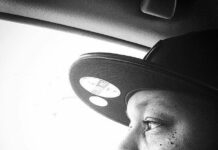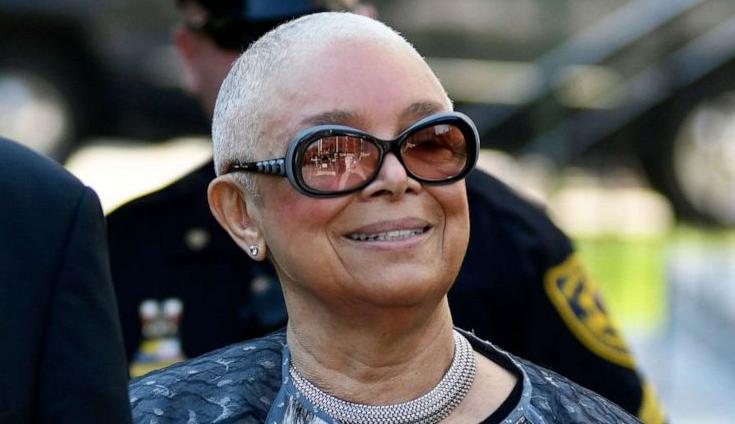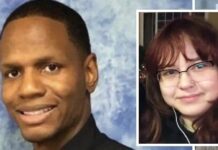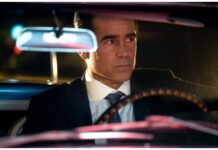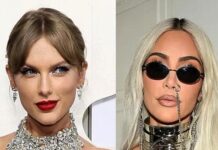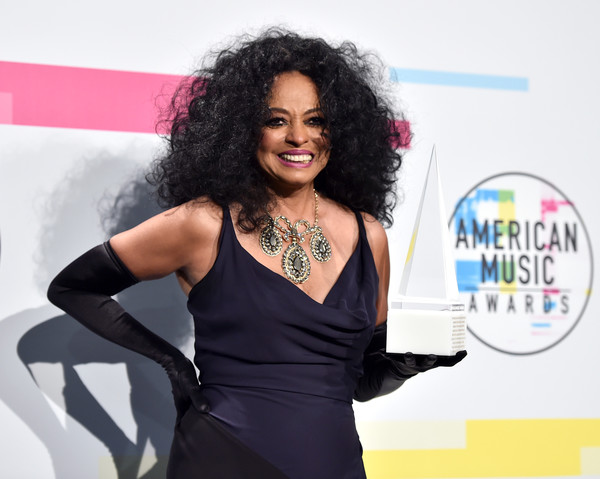
*Famed music producer Nile Rodgers and his late production partner Bernard Edwards first teamed with Diana Ross 40 years ago on her “Diana” album, which dropped May 22, 1980. It went on to become the best-selling LP of her career.
The album featured the hits “Upside Down” and the gay anthem “I’m Coming Out,” which was inspired by the Diana Ross drag impersonators at GG’s Barnum Room in midtown Manhattan.
“All of a sudden a lightbulb goes off in my head,” Rodgers previously shared with the New York Post. “I had to go outside and call Bernard from a telephone booth. I said, ‘Bernard, please write down the words: ‘I’m coming out.’ And then I explained the situation to him.”
While Ross immediately connected with the empowering lyrics of the song, she had no idea “I am coming out” was a gay thing.
“She didn’t even get that,” he said.
OTHER NEWS YOU MIGHT HAVE MISSED: Clueless: Diana Ross Didn’t Know ‘I’m Coming Out’ was ‘A Gay Thing’
As Pride Month comes to a close, Yahoo Entertainment caught up with the songwriter and Rock & Roll Hall of Fame inductee to discuss the lasting legacy of “I’m Coming Out.”
Below are excerpts from the conversation.
Yahoo Entertainment: “I’m Coming Out” is one of the most enduring gay anthems of all time. Was it written with that intention?
Nile Rodgers: This is actually a wonderful story. So, right near Studio 54, there was a string of clubs … and there were two clubs in that area that were very, very, very popular trans clubs. One was called the Gilded Grape. Typically, I would go club-hopping around there, and the Gilded Grape on Eighth Avenue was totally hot. One night there I went into the bathroom, and on either side of me, there were at least — I always try and make it sound plausible, because people don’t believe how many Diana Ross impersonators were hidden there that night, so let’s just make it sound believable and say there were only maybe three or four deep on either side. Let’s say, like, six to eight. So there I was, in the bathroom, surrounded by Diana Ross impersonators. And I was the middle of producing my first superstar in my life and it happened to be Diana Ross. Imagine you’re in a Fellini movie — that’s what this was like.
I looked around me and I was so excited. I wanted to yell to these people, “Hey, you won’t believe it, but I’m producing Diana Ross!” But nobody would have believed me. So I couldn’t even get excited. But what I did get was motivated. I had an idea. A light bulb went off, and I thought, “Wait a minute. If I write a song for Diana Ross and talk about a disenfranchised part of her fan base and sort of make it for them, this would be an important record.” This was something I hadn’t thought about before, and here it was, right in front of my face.
And so I ran outside and I called Bernard. He was dead asleep. I tried to explain the situation to him. I told him it would be like when James Brown wrote, “Say it loud, I’m Black and I’m proud.” No one had particularly thought of James Brown as a leader in the Black Power movement, but when he wrote that song, that was one of the most powerfully political things that could have ever happened. So I said, “No one thinks of Diana Ross necessarily on the frontlines of this, but [the gay] community and her [gay] fans love her and idolize her. Let’s write this song for them!” And Bernard got it. It totally made sense to him.
What was Diana’s reaction when you presented her with the song?
Diana loved it. We never delved into the meaning or why we wrote it — until she played it for Frankie Crocker, who had now become the No. 1 radio personality in the world. She left our studio floating on air, she just loved her album, but when she played it for Frankie, it was not a good experience. He told her it would ruin her career. And she came back to our studio crestfallen and heartbroken. Of course, what’s really cool about Diana is that even when she’s pissed off, she’s still elegant. But she comes back and she says, “Why are you guys trying to ruin my career?” And this was out of the clear blue sky — an hour or two before, she had been the happiest woman in the world! But we could see she was brokenhearted. And we said, “Diana, come on now. If we really ruin your career, we’re ruining our career! You’re already Diana Ross. We’re just starting out. Why would we want to go down in history as the guys who ruined Diana Ross’s career? Do you think anyone’s ever going to work with us again?”
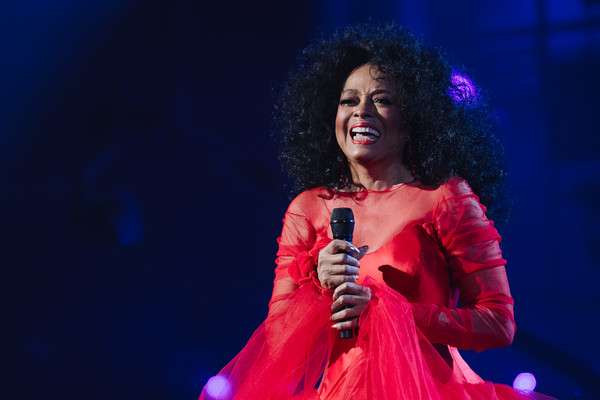
Why did Frankie think “I’m Coming Out” would mean career suicide for Diana?
The thing is that we had conducted all these interview sessions with her [before making the Diana album]. … Diana Ross had dictated to us her whole life. For instance, she had talked about “Upside Down” and how she wanted to turn the world upside down, turn her career upside down; those were her exact words. She had already known that we were writing every song about her life. So she may have misconstrued the idea when Frankie Crocker told her what “I’m coming out” meant — that she thought we were trying to imply that she was gay. Nothing of the sort. Diana is definitely not homophobic, that’s for sure. She is one of the coolest people you could ever meet. It was just that she now thought that we were saying that she was coming out.
She didn’t know what the term “coming out” meant?
She didn’t understand that this song was about the gay community. You’ve got to remember, doing this album to us was like doing a documentary. We got invited to her apartment and we did those interviews there, and we didn’t write a note of music until after we finished those interviews with Diana, not one note. She thought it was the coolest thing because it was the first time in her entire career that somebody had sat down, interviewed her, and wrote an album about her life. But we were writing the songs about her world through our eyes. So I never told her about [the Gilded Grape experience], because I didn’t have to. But what I did was, unfortunately I had to lie to her because she was so upset due to [Crocker’s remarks].
What did you tell her?
I said, “Diana, there’s a lot of things that Bernard and I say that you have to ask us what we mean, because we’re speaking in slang. We’re an R&B band. Whenever we’re about to start a show, we say, ‘Hey man, what’s our coming-out song tonight?’ Diana, don’t you say to your band, ‘Hey guys, what song are we going to come out with tonight?’ And she says, ‘No, I’ve never heard that before.’ I say, ‘Well, we do it all the time!’ And that’s the only time in my life — and this is a promise — that I have ever lied to an artist. But later, I said to her, “Diana, when you start your show, you will never ever come out with another song ever again, even though you’ve had so many hits. This is going to be the song that you come out to every night.” Well, have you ever seen a Diana Ross show in the last 35, 40 years? That’s what she does! Her concerts always start with “I’m Coming Out.”
Read more here.
We Publish News 24/7. Don’t Miss A Story. Click HERE to SUBSCRIBE to Our Newsletter Now!
